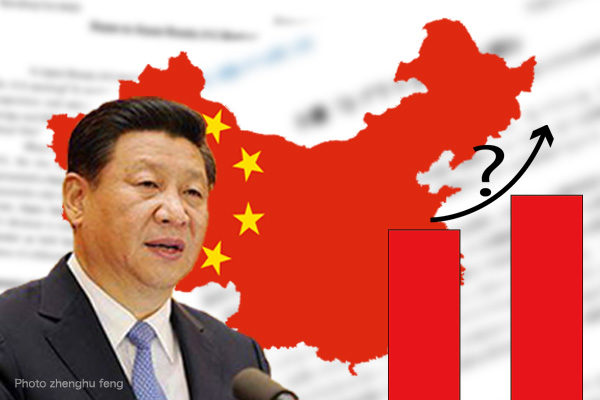Chinese government under President Xi Jinping has announced that China achieved its real economic growth target of 5% for 2023 as China’s gross domestic product in the year increased 4.6% in nominal terms or 5.2% in inflation-adjusted real terms. Are such GDP data credible?
For quite some time, there have been suspicions that local Chinese Communist Party cadres have falsified regional GDP data in an attempt to meet growth targets set by the central party leadership. So, I have personally estimated GDP growth based on data related to real estate investment, net exports, and household consumption, which greatly affect GDP.
Actual growth may be negative
Real estate investment itself accounts for more than 10% of GDP, but when including related demand such as electrical products, it becomes about 30% of GDP. As real estate investment in 2023 declined 16.7% from the previous year, it is calculated that real estate investment including related demand could have pushed down GDP nearly 5%.
Net exports, which are nominal exports minus imports, account for more than 3% of GDP. The total net exports in the first 11 months of 2023 decreased by 32.3% compared to the same period of the previous year, reducing the GDP by about 1%. When combining net exports with real estate-related factors, it results in a GDP contraction effect of about 6%.
The data on household consumption, which accounts for about 40% of GDP, has not been released. However, the retail sales of consumer goods in 2023 increased by 7.2% compared to the previous year. If this is considered as household consumption, it could have pushed up GDP by more than 2.8%. The combination of the three major GDP components thus indicate that GDP might have contracted more than 3% in nominal terms. Since the inflation rate was minus less than 1%, last year’s real GDP change can be estimated as a contraction of more than 2%.
In addition to these components, public investment will also be key. However, since the Xi government is cautious about large fiscal expansion that could accelerate the depreciation of the yuan, the effect of boosting GDP will be minimal.
Encourage Japanese companies to come back home
The Xi government’s obsession with achieving its GDP growth target is extraordinary. This is in line with the CCP policy of applying the anti-espionage law to discourses referring to Chinese economic decline.
The falsification and concealment of information, symbolized by GDP statistics, cannot help but increase investment risks in China. China’s economic decline under deflationary pressure could be prolonged. The bursting of the real estate bubble that began in the autumn of 2021 has not yet subsided. Recently, financial instability centered around non-banks has been occurring frequently.
In response, the Chinese government has public security police detain senior officials of non-banks and financial supervisory authorities, blocking out relevant information. Western companies and investors have drastically reduced direct and securities investment in China. Some Japanese companies have already moved to exit from China, but many seem hesitant.
We should now give up on investment in China completely and hasten the return to Japan. The Fumio Kishida administration only has to ensure the expansion of domestic demand through tax cuts and support domestic investment by companies.
Hideo Tamura is a Planning Committee member at the Japan Institute for National Fundamentals and a columnist for the Sankei Shimbun newspaper.


